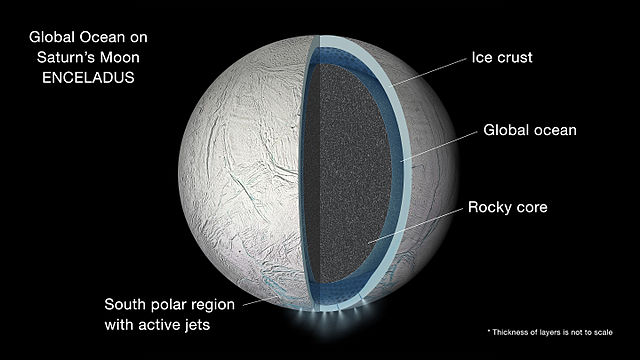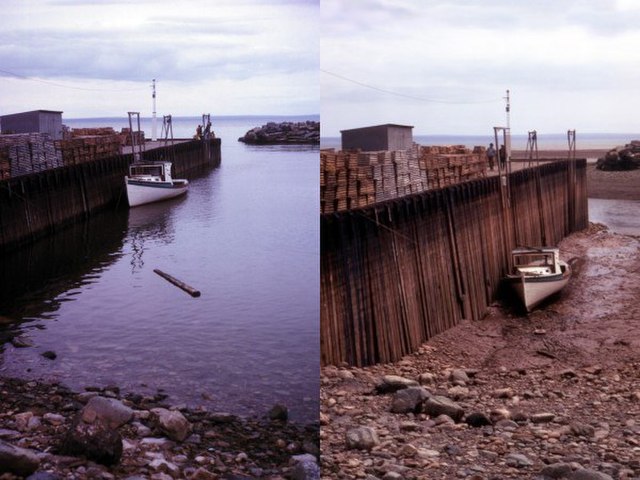An ocean world, ocean planet or water world is a type of planet that contains a substantial amount of water in the form of oceans, as part of its hydrosphere, either beneath the surface, as subsurface oceans, or on the surface, potentially submerging all dry land. The term ocean world is also used sometimes for astronomical bodies with an ocean composed of a different fluid or thalassogen, such as lava, ammonia or hydrocarbons. The study of extraterrestrial oceans is referred to as planetary oceanography.
Earth's surface is dominated by the ocean, which forms 75% of Earth's surface.
Diagram of the interior of Enceladus
A set of exoplanets of varying size containing water, compared with the Earth (artist concept; 17 August 2018)
Atacama Large Millimeter Array image of HL Tauri, a protoplanetary disk
The ocean is the body of salt water that covers approx. 70.8% of Earth. In English, the term ocean also refers to any of the large bodies of water into which the world ocean is conventionally divided. Distinct names are used to identify five different areas of the ocean: Pacific, Atlantic, Indian, Antarctic/Southern, and Arctic. The ocean contains 97% of Earth's water and is the primary component of Earth's hydrosphere, thus the ocean is essential to life on Earth. The ocean influences climate and weather patterns, the carbon cycle, and the water cycle by acting as a huge heat reservoir.
Pacific Ocean side, Apollo 11, July 1969
Praia da Marinha in Algarve, Portugal
The ocean is a major driver of Earth's water cycle.
High tide and low tide in the Bay of Fundy, Canada.







